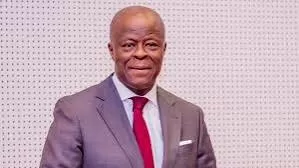
NIGRRIA’S DEBT TO IDA HITS $17B – REPORT
Nigeria has retained its position as the third-largest debtor to the World Bank’s International Development Association, with its exposure climbing to $17.1bn as of September 30, 2024.
According to the World Bank’s latest financial statements for the fiscal year up to September 2024, Nigeria’s debt to the IDA rose by $600m in three months from $16.5bn recorded in June 2024.
The PUNCH earlier reported that there was a 14.4 per cent increase between the figure for June 2024 and the $14.3bn recorded in June 2023.
The fiscal year, which ran from July 2023 to June 2024, saw the country receiving an additional $2.2bn in loans.
For the first time, Nigeria rose to the top three IDA borrowers in June 2024, moving from its previous fourth position in 2023.
So far, Nigeria has maintained this third-largest debtor position, receiving a total of $2.8bn from the World Bank’s IDA during Bola Tinubu’s administration.
Bangladesh and Pakistan occupy the first and second positions, with debt exposures of $21bn and $18.5bn, respectively.
I[i]ndia, which ranks fourth, maintained its debt at $15.9bn, while Ethiopia stands at $13.1bn.[/i]
Other top borrowers include Kenya ($12.4bn), Tanzania ($12.2bn), and Vietnam ($12.2bn).
At the lower end of the list, Ghana and Uganda owe $7bn and $5bn, respectively.
These ten countries account for 63 per cent of IDA’s total exposure, highlighting their heavy reliance on concessional financing.
The IDA has set its Single Borrower Limit at $47.5bn for FY2025, representing 25 per cent of its $190.3bn equity as of 30 June 2024.
Although Nigeria’s debt remains significant, it is still within the SBL threshold, which the World Bank considers non-restrictive at present.
The financial statements document read, “As of September 30, 2024, the ten countries with the highest exposures accounted for 63 per cent of IDA’s total exposure. Monitoring these exposures relative to the SBL requires consideration of the repayment profiles of existing loans, as well as disbursement profiles and projected new loans and guarantees.”
Nigeria’s loans from the IDA, which offer low-interest rates and extended repayment terms, differ from its obligations to the World Bank’s International Bank for Reconstruction and Development, which provides financing at market rates.
The concessional loans have become a crucial element of Nigeria’s funding strategy, particularly under the administration of President Bola Tinubu, who has been managing inherited debts while implementing reforms.
The Federal Government spent $3.58bn servicing its foreign debt in the first nine months of 2024, representing a 39.77 per cent increase from the $2.56bn spent during the same period in 2023.
This was according to data from the Central Bank of Nigeria on international payment statistics.
The significant rise in external debt service payments shows the mounting pressure on Nigeria’s fiscal balance amid ongoing economic challenges.
 Premium News
Premium News